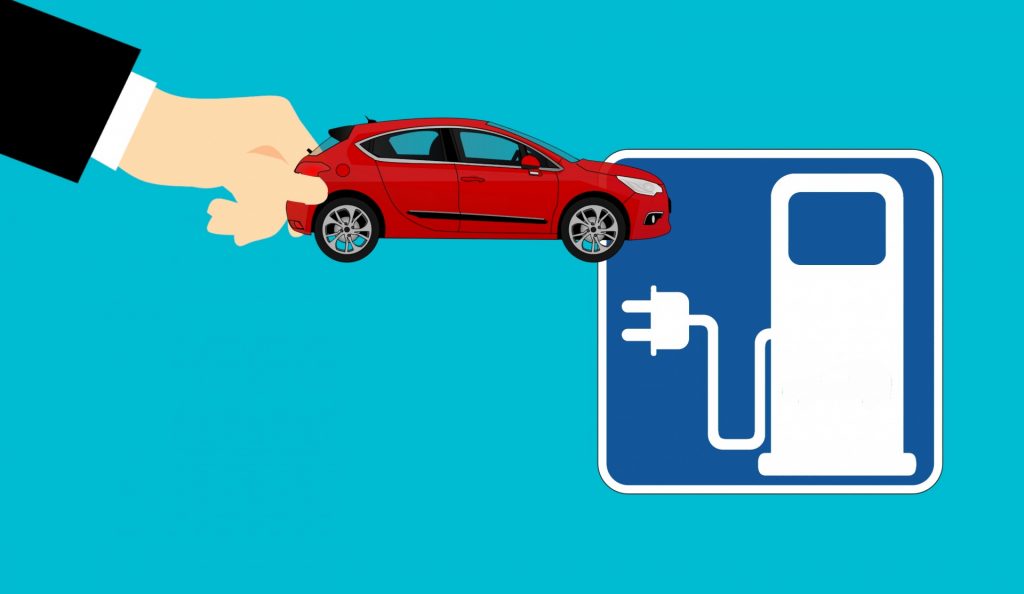Last Updated on Feb 13, 2020 by Komal Roy
Amid long-standing issues of exploiting fossil fuel and surging air pollution caused by the extensive use of ICE vehicles, the global automotive market has come up with an environmentally friendly alternative—the electric vehicle. Just like the US, China, and Norway, India also seems eager to embrace this new-age mobility option. Well, at least the government is looking forward to revolutionising the automotive industry by adopting electric mobility.
But, is the policymakers’ ambition alone enough to handle the thrust gracefully? Moreover, is the automotive industry ready to embrace electric disruption? And, how will consumers react to this move? Before delving deeper into the matter, here’s some background to understand whether India is prepared to shift the gear to EVs or not.
Table of Contents
Why the intense interest in adopting electric vehicles?
While curbing the devastating effects of climate change has driven the government to embrace electric mobility, triggers such as surging air pollution and hefty crude oil import bills have contributed equally. Naturally, zero-emission EVs are a near-to-good alternative for ICE-powered vehicles.
What is the global scenario?
At the forefront of the global EV revolution are economies like China and Europe, whose governments are enticing auto entrepreneurs to elbow EV sales. Capitalising on this, brands such as Tesla, BYD, Chery, and a handful of others have made the most of this business opportunity, and have got a taste of success.
While only 5 million EVs run on the road today, the Bloomberg New Energy Finance (NEF) estimates that:
- EVs will have claimed over 30% of passenger and 57% of overall vehicle sales, respectively, by 2040
- Price parity between ICE-powered and electric vehicles will surface by the mid-2020
- ICE vehicles will experience a peak by 2030 and start declining thereafter
It is a no-brainer that adopting EVs is inevitable to address issues of worsening pollution and its contribution to climate change. Riding on this and the urgency of various governments’ to shift the gear to EVs, notable global auto leaders like Volkswagen, Toyota, and Hyundai are eyeing the business opportunities that electrification of the automotive industry will create. Volkswagen has already invested over $90 billion in EVs. The automotive-giant also looks to launch 70 models and achieve a 22 million-unit sales by 2028.
What’s the role of the Indian government in establishing energy-powered mobility?
Given the current slowdown of the economy and the automobile industry among other reasons, shifting to EV rapidly is indeed an ambitious dream that the Indian government is nursing. Still, the government has taken various steps in this regard. Here’s what the government is doing to make their dream come true:
- The government had directed NITI Aayog, a policy think tank of the Government of India come up with a plan to thrust EVs in the country
- Following this, the NITI has planned to deny the registration of ICE-powered 2-wheelers under 150cc by 2025 and 3 wheelers by 2023
- The centre has declared to subsidise EVs to push sales of the ICE-powered alternative
- The centre has announced Rs 10,000cr for 3 years ending 2022 towards the Faster Adoption and Manufacturing of Hybrid and Electric Vehicles 2 (FAME 2)
- Rs 8,596cr has been sanctioned as incentives, out of which Rs 1,000cr has been allotted for setting up charging stations for EVs
- An outlay of Rs 3,545cr may reportedly go towards incentivizing the purchase of 7,090 electric buses, Rs 26cr for 20,000 hybrids, Rs 525 for 35,000 4-wheelers and Rs 2,500cr for 5,00,000 3-wheelers
What is the stance of the Indian automotive industry?
Despite the government’s efforts towards adopting energy mobility, the auto industry seems reluctant to embrace the sudden shift to energy mobility for the following reasons:
- The fear of adopting EVs impacts both manufacturers and dealers alike. Unlike ICE vehicles, EVs don’t require frequent servicing and changing of parts, which is the main source of income for dealers. Thus, the advent of EVs would threaten the dealer’s income. Besides, it would also add to the manufacturer’s woes of dealer retention
- The automotive industry fears that the shift to EV would increase the cost of vehicles by over 10% and slow down the sales. For instance, Maruti reveals that the battery of an electric variant of its Wagon-R model alone costs from Rs 4.2 to Rs 5.7 lakh, which inflates the final price tag of the e-car that would sell at up to Rs 12 lakh
What’s the scene on the macro-level of the economy?
On the macro level too, the picture is far from rosy. Here’s why:
- Loss of over 3 lakh jobs in the automotive sector has been reported this year, the entry of EV being one of the reasons
- Lack of infrastructure for charging points is another setback
- The demand and supply gap in electricity is also a major concern of rapidly shifting to energy mobility. Given the current scenario of uneven and poor-quality electricity supply in the country, the question of how the government plans on meeting the annual energy required to run EVs also causes worry
- A major portion of the state government revenue comes from the sale of fuel, which is beyond Rs 1.9 lakh crore. This is why the state governments may not be very eager to embrace electric disruption
- India lacks minerals such as lithium and cobalt that are required to manufacture batteries of an EV. Further, lack of advanced technology to manufacture the motor and engine of an EV, the vital components of the machine, is also a concern. Importing these components would inflate the cost of an EV, the burden of which will fall on the consumers. Moreover, batteries are manufactured by potential competitor countries, which would threaten the ‘Make in India’ campaign. Notably, the government has made quite some reservations for electric mobility in the Budget 2020, which would also uplift Make in India
Who are the pioneers of electric vehicles in India?
Currently, at the forefront of the EV segment in India are startups such as Okinawa, Torque, and Ather Energy. ICE vehicle leaders are yet to catch up with the developments.
How would an electric vehicle impact the common commuter?
The common commuter looks for a reasonably priced car that also offers the comfort of seating. However, when the first EV hit the Indian roads, citizens were not very pleased, given its high price but low comfort. The fear on these fronts still drives most consumers, who may be reluctant in welcoming EVs, back to the traditional mobility options.
Sample this, while you can save on the servicing cost of EVs, your relief may be short-lived due to the 8-year warranty that comes with an EV. If the warranty mandates you to get your EV serviced by the same dealer during these 8 years, then you would have to be prepared to pay a high price.
The safety of an EV is also a major concern. Amid heavy rains and floods in the country, the safety of the motor and the battery of an EV is questionable, especially due to the placement of its battery, which is typically under the floor.
All these points stress that India may not emerge victorious in its efforts of thrusting EVs at this time. When the economy, employment, and cost to the common man are in question, shifting to EVs at rocket-speed now would be disastrous. However, with proper infrastructure, advanced technology, and awareness about this type of electric mobility, introducing EVs in a phased manner can help the government fulfil its ambition eventually.
Enjoyed the read? We have a stack of other articles, which we hope would be worth your time 🙂
- Best Performing Index Funds in India (2025) - Jun 5, 2025
- Issue of Shares – Meaning, Types, Examples and Steps - Jun 4, 2025
- Banking Mergers in India – List of Merged PSU Banks, Advantages, and Challenges - Jun 3, 2025





